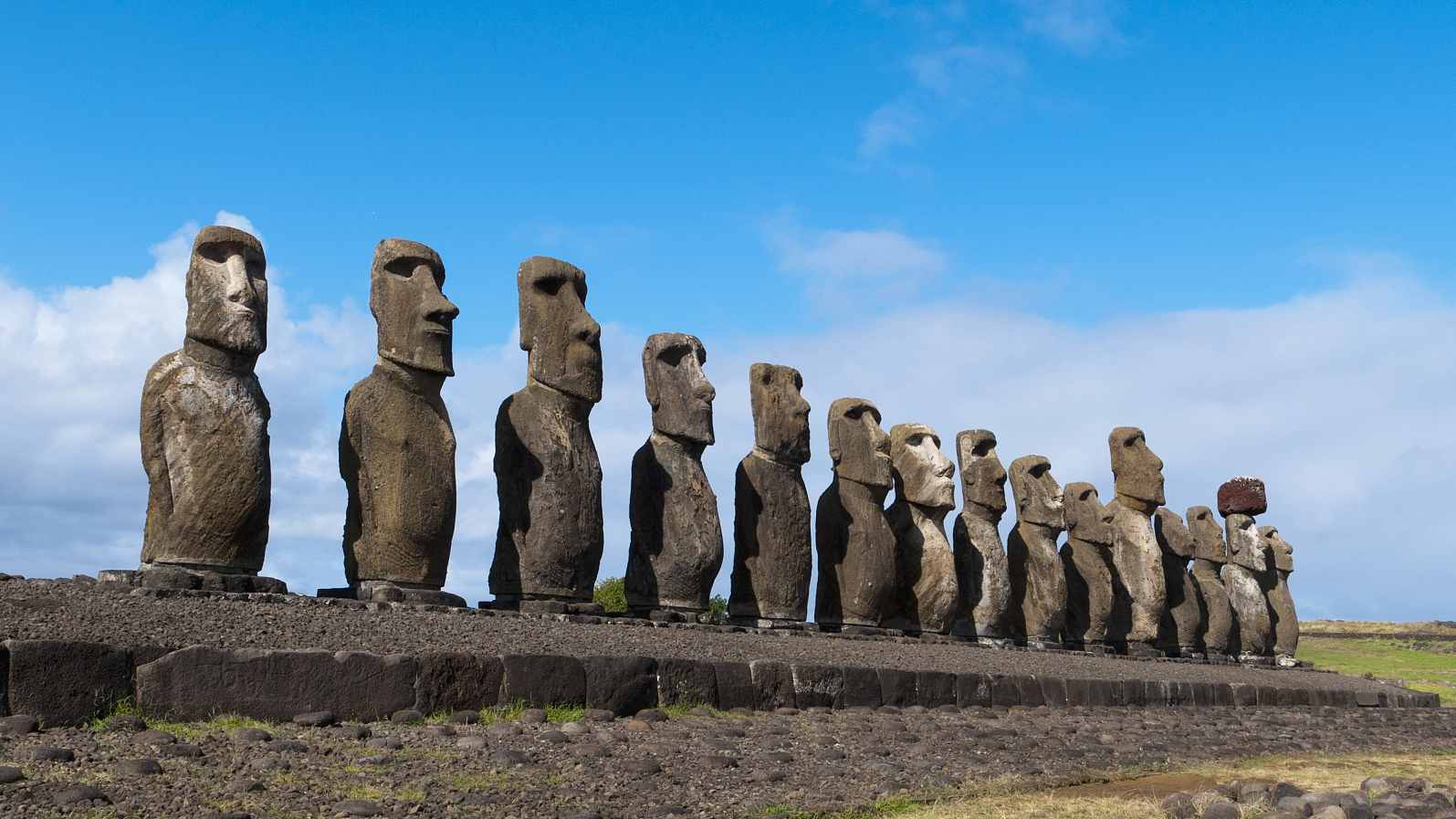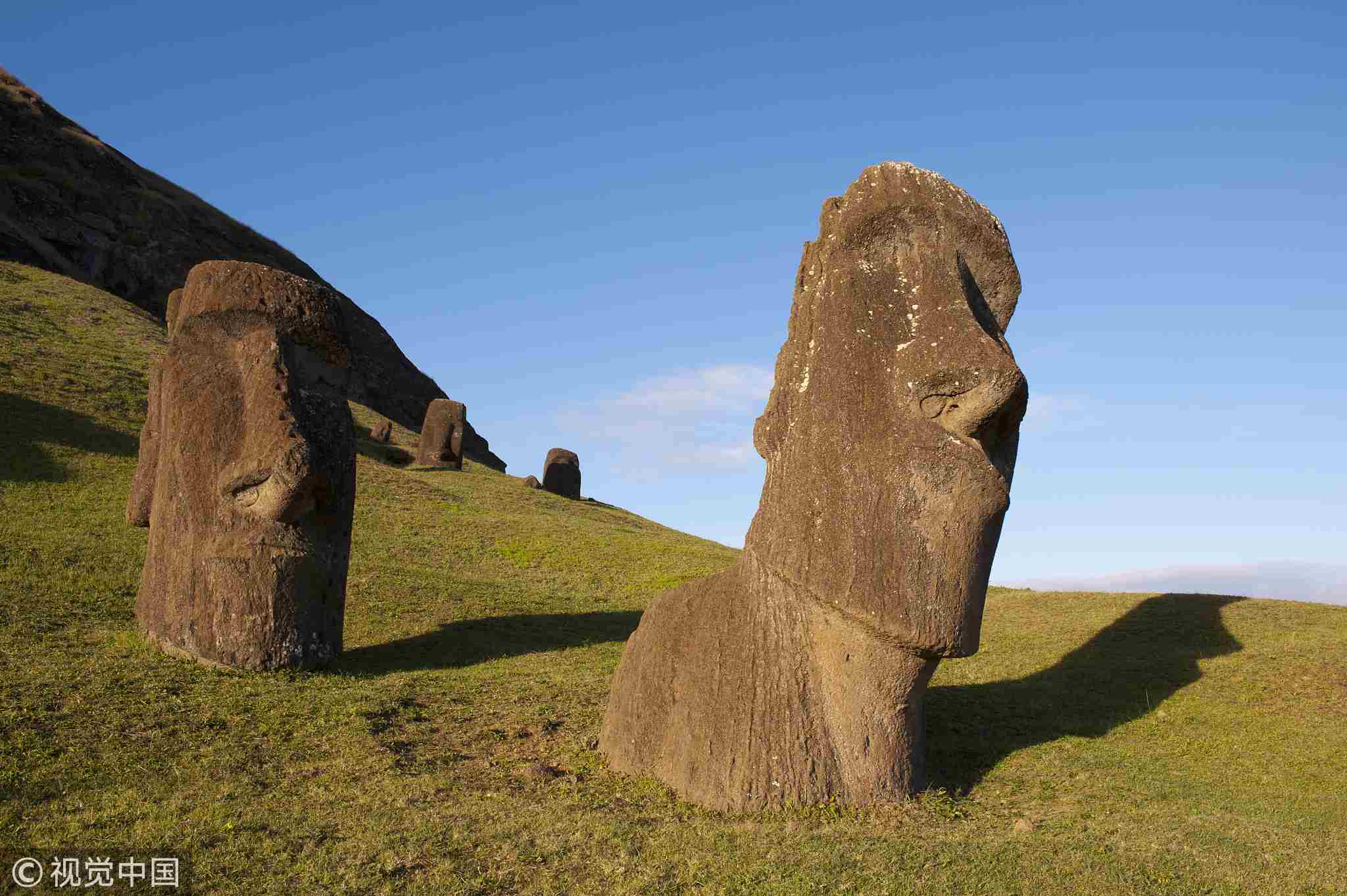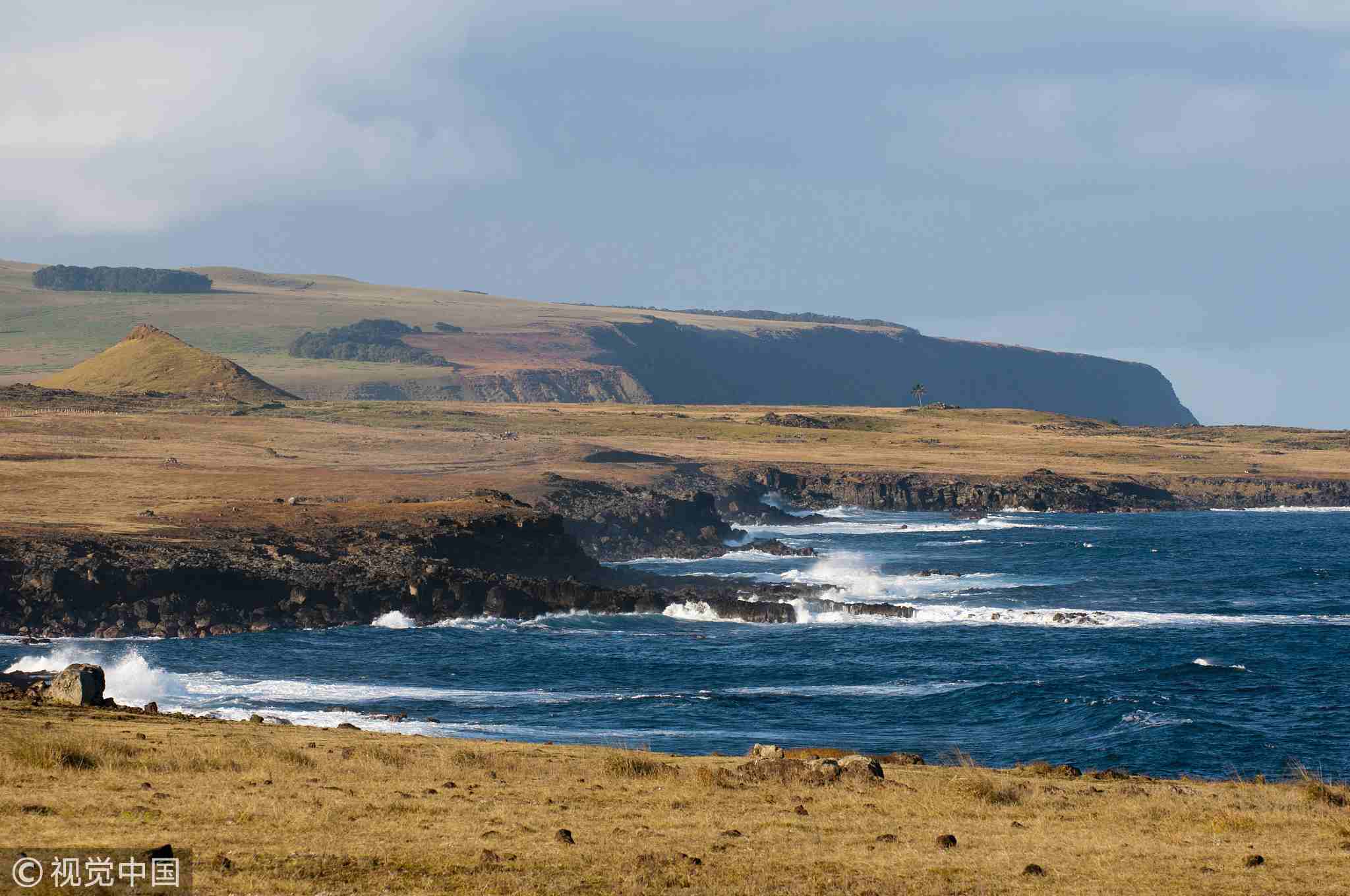
World
14:47, 02-Aug-2018
Chile cracks down on Easter Island tourism to protect environment
Updated
14:40, 05-Aug-2018
CGTN

Chile is cracking down on tourists and non-local residents on its remote Easter Island, in a bid to protect the famed destination’s environment and heritage, and tackle rising crime.
New rules came into effect on Wednesday reducing the time that tourists – foreigners, but also Chileans not part of the Rapa Nui people – can stay on the island from 90 to 30 days.
Those wishing to visit Easter Island must now fill out a special form, have a hotel reservation or present a letter of invitation from an islander, along with showing round trip tickets.
Those who wish to live on the island are required to be a parent, partner or child of the Rapa Nui people.

Rapa Nui, Easter Island, Chile. /VCG Photo
Rapa Nui, Easter Island, Chile. /VCG Photo
Others who will be allowed to stay are public servants, employees of organizations that provide services to the government, and those who develop an independent economic activity alongside their families.
The new rules will also establish a yet-to-be-decided maximum capacity.
Despite its isolated location some 3,500 kilometers from the coast of mainland Chile, the island is a popular tourist destination, not least due to the around 900 giant human figures that line the island, standing up to 10 meters tall.
The Moai monumental statues were carved by the Rapa Nui people, believed to have arrived on the Pacific island around the 12th century.
But tourists and mainland migrants have become a threat to the island's wellbeing.
"It is a magical island, we all want to visit it, but it is also a sensitive island and therefore we have to take care of it," Chile's President Sebastian Pinera said Wednesday, speaking on the country's 24-hour news channel.

Southern coastline of Rapa Nui, Easter Island, Chile. /VCG Photo
Southern coastline of Rapa Nui, Easter Island, Chile. /VCG Photo
At the last census in 2017, there were 7,750 people living on Easter Island, almost double the population of a few decades ago, before the island was hit by a tourism boom and the real estate development that accompanied it.
Mayor Pedro Edmunds told AFP news agency that tourists are "damaging the local idiosyncrasy" as "customs from the continent" are infiltrating the island. "The 1,000-year culture is changing and not for the good."
Crime and domestic violence figures are also rising, and basic services such as waste management, are straining under the pressure.
"Environmentally the island is very fragile," Ana Maria Gutierrez, the local government's environmental adviser told AFP.
For Mayor Edmunds, the legislation is "a good start" but “not enough.” Like "many other Rapa Nui" he said he favors a "total" ban on the arrival of new residents.
Source(s): AFP

SITEMAP
Copyright © 2018 CGTN. Beijing ICP prepared NO.16065310-3
Copyright © 2018 CGTN. Beijing ICP prepared NO.16065310-3